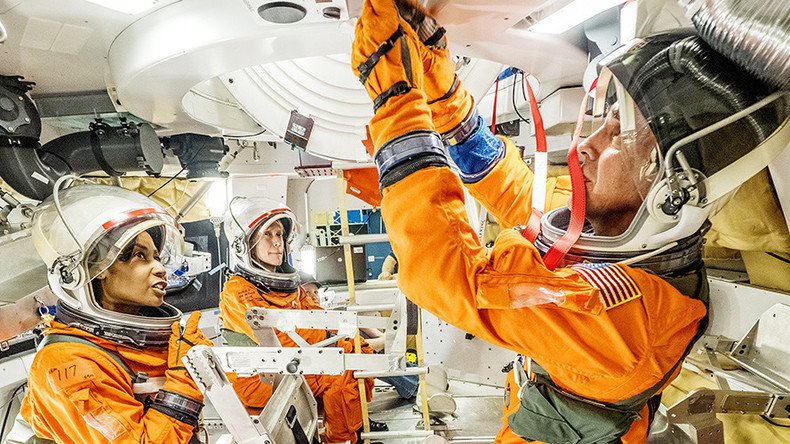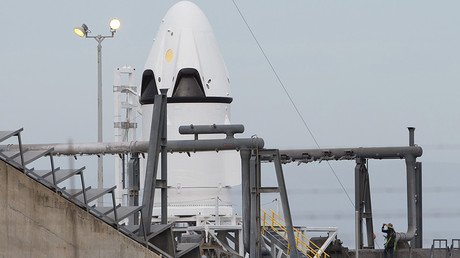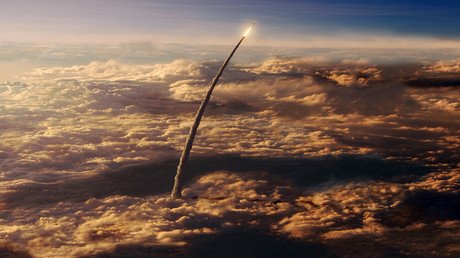‘Space brain’: Mars astronauts could experience long-term cognitive damage, study says

Humans could be heading to Mars as early as the 2030s, but the astronauts may not remember much of their trip. A new study suggests that those traveling to the Red Planet may experience long-term brain damage known as “space brain.”
The study, conducted by researchers at the University of California, Irvine (UCI) and published in Nature’s Scientific Reports journal, found that exposure to highly energetic charged particles – much like those found in the galactic cosmic rays which bombard astronauts during long space flights – cause long-term brain damage in rodents. That brain damage can result in serious cognitive impairments, including dementia.
In addition, the radiation was found to decrease “fear extinction,” a process by which the brain suppresses prior stressful situations. The researchers noted that deficits in fear extinction could make a person prone to anxiety.
“This is not positive news for astronauts deployed on a two-to-three-year round trip to Mars,” Charles Limoli, professor of radiation oncology in UCI’s School of Medicine, said in a statement.
“The space environment poses unique hazards to astronauts. Exposure to these particles can lead to a range of potential central nervous system complications that can occur during and persist long after actual space travel – such as various performance decrements, memory deficits, anxiety, depression and impaired decision-making. Many of these adverse consequences to cognition may continue and progress throughout life,” Limoli continued.
Although dementia-like affects would take months to occur in the brain, Limoli stressed that the time required for a mission to Mars is sufficient time for such impairments to develop.
The research involved subjecting rodents to charged particle radiation (fully ionized oxygen and titanium) at the NASA Space Radiation Laboratory at New York’s Brookhaven National Laboratory. The rodents were then sent to a lab at UCI.
Six months after the rodents were initially exposed to the radiation, significant levels of brain inflammation and damage to neurons were still present. Through imaging, the researchers found that the brain’s neural network was impaired through the reduction of dendrites and spines on neurons, which interrupts the transmission of signals among brain cells.
“These deficiencies were parallel to poor performance on behavioral tasks designed to test learning and memory,” the researchers wrote.
Limoli, whose work is part of NASA’s Human Research Program, stressed that the space agency needs to consider the risks of highly energetic charged particles on astronauts, as it aims to send astronauts to Mars in the 2030s.
He noted that partial solutions to the problem are currently being investigated, such as designing spacecraft to include areas of increased shielding. However, he stressed that “there is really no escaping” highly energetic charged particles.
Limoli and his colleagues are also working on pharmacological strategies, including compounds that hunt for free radicals and protect neurotransmission.
The research mirrored a 2015 study by Limoli, which examined mice six weeks after being exposed to highly energetic charged particles.














